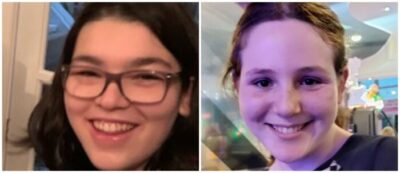6th April, 2023
YWSP winners announced!

The two category winners for the Young Walter Scott Prize have been announced, alongside eight runners-up and highly commended young writers.
The winner of the 11-15 years category is Ellie Karlin for her story Mrs Fujita’s Living Room, while Rosie Brooker, author of Forever England, won in the 16-19 years category. Both stories examine the effects of war, with Ellie’s story set on the eve of the end of the Second World War and Rosie’s set in the immediate wake of World War 1. You can read the stories in full here.
Mrs Fujita’s Living Room by Ellie Karlin
Forever England by Rosie Brooker
Chair of the YWSP Judging panel, Elizabeth Laird, said:
“Every time I settle down to read the Young Walter Scott Prize entries, I’m fascinated to see what subjects the young writers choose. They’re always a surprise. Inspiration strikes from places all around the world and from every century, sparked by places the children have visited, by an inspiring teacher or by the personal histories of their families, or perhaps by a poem, a memory, a painting or a sudden wild act of the imagination.
“Reading these stories, I feel sure that the future of fiction is secure. Some of these young writers will go on to do great things, but for now we can pause to celebrate what they have already achieved.”
The winning entry in the younger age group, Mrs Fujita’s Living Room, is set in Japan as World War 2 – little do the protagonists know – draws to its horrific close, and is all the more profound in its quiet domesticity when set against the dramatic world picture that hindsight now offers.
Talking about her winning short story, Ellie Karlin, who is 14 and lives in Bristol, said:
“I chose to set my story in Japan at the end of the Second World War because I wanted to explore parts of the war the GCSE curriculum doesn’t go into depth about. I became fascinated by the terrible ethics represented by the decision that eventually ended the war but, given the extensive debates that have already taken place on this, wanted to represent the human side through the form of storytelling.”
When asked what advice she would give to other budding writers, Ellie added:
“Choose a historical period you find really interesting and exciting, then learn as much as you can about it. After that, I think the main thing is to immerse yourself in that time and have fun coming up with characters living such different lives to you!”
Winner in the 16-19 years category is 16-year-old Rosie Brooker for her story Forever England, which is set at the close of the First World War and addresses the disconnect between the so-called ‘war heroes’ of literature, whose experience has become part of the national consciousness, and the real experiences and stories that have been erased from that consciousness – or which were never a part of it to begin with. Rosie said:
“I chose to set my piece just after the First World War because I think it is an interesting period of transition, both historically and in literature. I wanted to explore different elements of the period in conjunction with one another, rather than looking in isolation at the horrors of the war.
“I was also inspired by the story of Rupert Brooke, the poet who wrote the famous line after which I named my story: ‘If I should die, think only this of me: / That there’s some corner of a foreign field / That is forever England’. The more I read and researched around Brooke, the more flaws I found with the image – portrayed in my English lessons at school — of him as a tragic war hero; his many guises reflected the different ways in which this period can be understood, and I wanted to use this true story to enrich my fiction.”
Asked what she would say to other aspiring young writers, Rosie, who lives in Solihull, added:
“There is such scope to write about a period which interests you, to be inspired by history, to hear your own voice alongside other writers – contemporaries of the time, historians, historical fiction authors. I would always advise to stick to whatever you’re interested in, however niche or idiosyncratic, because then the whole process of thinking, researching and writing will be more rewarding and your story will be better, at the end of the day.”
The two winners each receive a £500 travel grant, their stories will be published in this year’s Young Walter Scott Prize Anthology, and they will be special guests at the Borders Book Festival in Melrose, Scotland, in June to be presented with their prizes.
Runners-up and highly commended young writers were also awarded in each age category. In the 11-15 age group, two runners-up were awarded: Melissa Muthama for The Day Hope Died; and Ted Whitaker for It’s the Noise. There were also two highly commended writers in the younger category: Gavriella Epstein-Lightman for Scars Never Heal; and Samantha Yeung for Let There Be Light.
In the category for writers aged 16-19, two runners-up were awarded: Florence Bolton for Sea-Change; and Atlas Weyland-Eden for White Fox. Two highly commended writers were also recognised: Sophie Davey-Adam for Sixteen String Jack; and Amelie Roscoe for Troublesome.
On the judging panel this year was award-winning author Elizabeth Laird (Chair); Young Walter Scott Prize director Alan Caig Wilson; literary agent Kathryn Ross; and former Literary Editor of The Scotsman, David Robinson.
An anthology of all the prizewinning work will be produced next month, and all ten stories will be published here on the website in the next few weeks.
Congratulations to all the winners and entrants, and if you weren’t successful this year, the prize will be opening for entries again later this summer!
